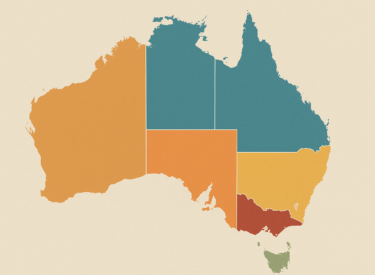Generation Z (born between 1995 and 2009) were shaped in their formative years by the rise of digitalisation, and more recently, the behavioural shifts caused by a worldwide pandemic.
There are currently almost 5 million Gen Z in Australia, comprising 19% of the national population.
As they continue to enter the workforce over the next decade, they are competing with more experienced and qualified workers.
In 2030, Gen Z will represent a third of the Australian workforce.
As they gradually become the largest generation in the workforce, it is important to understand the changing expectations that this generation has towards their careers, so that companies can champion them to be leaders of tomorrow.
Digital Integrators
Five factors that define Gen Z and their career expectations are digital, global, social, mobile, and visual.
As a digitally intertwined generation, technology is especially appealing to Gen Z in the workplace.
Four in five Gen Z (80%) want to work with cutting-edge technology in their future career and almost all Gen Z (98%) have used technology as part of their formal education.
The increased use of technology in formal education has integrated technology literacy as a fundamental skill expected in any industry.
This sentiment is shared by almost all Gen Z (97%), who agree that technology literacy matters.
Despite having a strong desire and excitement for working with advanced technology, Gen Z still desires human interactions in the workplace.
Seven in ten Gen Z (71%) feel that a weekly check-in frequency is optimal, and their preference is for frequent, in-person catch-ups.
More than one in two Gen Z (58%) want check-ins to take place entirely in person while only 2% would choose to completely virtualise check-ins.
More than just money
Employment is an important part of a Gen Z’s life, but it is not their whole life.
A career that allows them to continue advancing in other aspects of their life is highly attractive.
For more than three in five Gen Z (63%), the alignment of organisational culture and values matters more than conditions and salary packaging.

In comparison, this is true for less than half (48%) of Baby Boomers.
Gen Z are also looking for flexibility in the workplace.
Three in five (61%) see flexible working hours as extremely or very important to them in their place of employment.
The provision of workplace flexibility is compelling as one in four Gen Z (26%) would work harder and stay longer at a company that supports flexible scheduling.
Gen Z as a generation has put the spotlight on the practices of big corporations, leading to the rise of ethical consumerism and increased corporate social responsibility.
Almost two in five Gen Z (38%) want to work for a socially or environmentally responsible organisation.
One in two (50%) also want the opportunity to learn new skills and have new experiences.
They are looking for work that makes big positive impacts, with almost one in two (45%) wanting work that has meaning and purpose beyond just getting paid.
Job plans
Three in five Gen Z (61%) plan to remain at their current job for more than a year.

The same proportion also plans to stay for over two years.
They are, however, unlikely to stay at a job for long if they are not given a promotion, so leaders and managers need to ensure they address this with young staff and manage these expectations.
Training and development are always important for employee engagement, and more than three in five Gen Z (63%) believe that opportunities for advancement are an extremely or very important attribute for a workplace.
Young Australians also have big dreams and expectations for their future jobs.
Two in five Australian 15-year-olds (41%) expect to work in one of the following jobs at the age of 30 (doctors, teachers, business managers, engineers, lawyers, police officers, ICT professionals, nursing and midwifery, designers, and psychologists).















